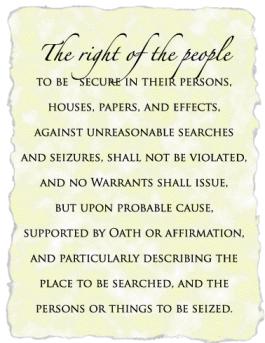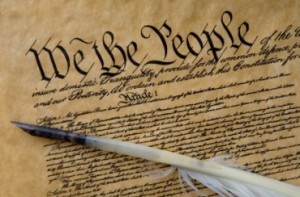All citizens should know their rights, especially when dealing with law enforcement. Whether you are in Tulsa, other parts of Oklahoma or elsewhere in the US, you need to know and use your rights as a citizen. If you don’t use your rights, you’ll lose them and you cannot use them if you don’t know them.
Please familiarize yourself with the information on our website so you can be prepared to exercise your rights.

1. NEVER grant permission to the police (or anyone else) to search your house, car, bags/luggage, person or any other property.
2. During a traffic stop, do not answer questions that are not related to the stop, such as where are you coming from or where you are going, if you are carrying large sums of cash, where your work, or what the purpose of your travel is. If the officer persists with these questions, tell him you want to speak with your attorney. If the officer tells you that you are free to go, then LEAVE. Do not agree to stay and answer more questions.
3. If a police officer asks you to exit your car, roll your window up, exit the car and immediately close the car door. Lock the car door and place your keys in your pocket. If passengers are asked to exit the car, tell them to do the same thing.
4. If an officer begins talking to you on the street, ask the officer if you are being detained. If the officer says no, then tell the officer you do not want to speak to him and leave the area. If you are told you are being detained or are under arrest, NEVER answer any questions. Tell the officer you are remaining silent and that you want to speak to your attorney immediately.
5. The most common reasons for police to show up at your front door is because of noise or pet complaints. Keep your stereo turned downed, tell your guests to be quiet, and keep your pets under control.
6. If the police knock on your door, step outside and CLOSE the door behind you while you find out why they are there. NEVER consent to any search. If the police have a search warrant, stand aside and remain silent other than to say you want to contact your attorney immediately.
7. Whenever possible answer questions from the police with a question:
- 1.) Police Officer: “Where are you going to?” Citizen: “I am not answering any questions. Am I free to go? Police Officer: You think you are really smart, don’t you?” Citizen: “Can I call my lawyer now?”
- 2.) Police Officer: “You don’t mind if I search your car do you?” Citizen: “Am I free to go?”
- 3.) Police Officer: “Do you have any drugs, guns, large amounts of cash in your car?” Citizen: “Can I call my lawyer now?” (NOTE: If you have an Oklahoma Concealed Weapon License, you are obligated to tell a police officer at the beginning of a traffic stop that you have a weapon on your person or in your car.)
- 4.) Police Officer: “Can I come in your house and look around?” Citizen: “Do you have a search warrant?” Police Officer: “No, but I will get one if you refuse permission. Do you have something to hide?” Citizen: “Can I call my lawyer now?”

8. When in doubt about what to say just invoke your right to counsel by saying something like “Can I call my lawyer now?” or “I have nothing to say until I talk with an attorney.” Legally the police may not continue to question you once you have invoked your right to counsel.
9. Remember the police LIE! Some examples of lies the police will tell you are the following: “If you tell me where you got the marijuana, I won’t arrest you.” “Things will be easier on you if you just tell me everything.” “I won’t charge your wife/child/friend if you just admit the marijuana/pipe/papers are yours.” “Either tell me where the marijuana is now or I will tear up your car/house/belongings.” Do not fall for these lies. Refuse to talk to the police and tell the officer you want to talk to your attorney immediately.
10. If you are placed into the back of a police car with your passengers/friends/family members, and the police officer walks away, KEEP YOUR MOUTH CLOSED! More than likely you are being recorded.
11. Password protect your cell phone. Do not give your password to the police. If a police officer demands to know your cell phone password, demand to speak to an attorney. As a further precaution to safeguard your privacy, delete all text and voice messages that you do not need.
12. You will look silly if a police officer tells you that you can call your lawyer, and you have no number to call. Everyone should carry the business card of a criminal defense attorney. My business cards include my cell phone number where I can be reached 24 hours a day, and my cards also have an abridged version of the rights outlined on this page. I will be happy to mail you one of these cards for free.
To see some very well done video clips that show you how to deal with confrontations with the police, go to the flexyourrights.org website.











